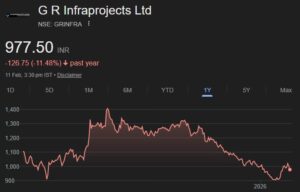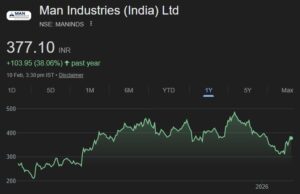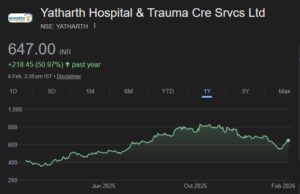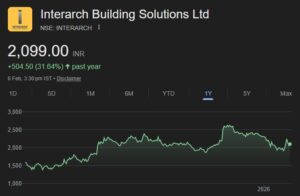Margin traders
Margin traders are speculators who make use of the payment mechanism, which is peculiar to the derivative markets. When you trade in derivative products, you are not required to pay the total value of your position up front. You are only required to deposit a fraction (called margin) of the value of your outstanding position. This is called margin trading and results in a high leverage factor in derivative trades, i.e., with a small deposit, you are able to maintain a large outstanding position. This leverage factor is a multiplier, which allows the speculator to buy three to five times the quantity that his capital investment would otherwise have allowed him to buy in the cash market.
For example, let’s say a sum of Rs. 1.8 lakh fetches you 180 shares of XYZ Ltd. in the cash market at the rate of Rs. 1,000 per share. Under margin trading in the derivatives market, if you are required to deposit a margin of say 30 per cent of the value of your outstanding position, you would be able to purchase 600 shares of the same company at the same price, with your capital of RS.l.8 lakh, i.e. Rs. 1.8lakh1(30 per cent of Rs. 1000) == 600 shares. So, in effect, you are allowed a leverage of 3.33 times in this case (100/30). If the price of XYZLtd. rises by Rs. 100, your 180 sharesin the cash market will deliver a profit of Rs. 18,000, which would mean a return of 10 per cent on your investment. However, your payoff in the derivatives market would be much higher. The same rise of Rs. 100 in the derivative market would fetch Rs. 60,000, which translates into a whopping return of over 33 per cent on your investment of Rs. 1.8 lakh. This is how a margin trader, who is basically a speculator, benefits from trading in the derivative markets.
Arbitrageurs
Life is not perfect and capital markets have their share of imperfections too. Sometimes the price of a stock in the cash market is lower or higher than it should be, in comparison to its price in the derivatives market. Arbitrageurs exploit these imperfections and inefficiencies to their advantage. Arbitrage trade is a riskless trade where a simultaneous purchase of securities is done in one market and a corresponding sale is carried out in another market. These are done when the same securities are being quoted at different prices in two markets. In the earlier example of XYZ Ltd., suppose the cash market price is Rs 1000 per share, it may be quoting at Rs 1010 in the futures market. An arbitrageur would in the futures market. An arbitrageur would purchase 100 sharesof XYZ Ltd. at Rs 1000 in the cash market and simultaneously, sell 100 shares at Rs 1010 per share in the futures market, thereby gaining Rs 10 per share on the day that the futures contract expires. This is because in the Indian markets, there is no delivery of shares in order to settle positions in the derivatives segment; as you will see later, the cash and future prices converge on the expiry day,and a trader merely paysor receives the difference between his purchase price and the price prevailing in the cash market on the day the contract expires. For now, all you need to know is that by holding your position (purchase 100 shares in the cash market at Rs 100 and selling 100 shares in the futures market at Rs 110) until a specific date in the near future (expiry date of the futures contract), you can make a risk free return of Rs 10 per share that you have bought and sold a neat profit of Rs. 1,000, for taking no risk at all.
Speculators, margin traders and arbitrageurs are the lifeline of the capital markets as they provide liquidity to the markets by taking long (purchase) and short (sell) positions. They contribute to the overall efficiency of the markets.
Types of Derivatives – Futures
We had briefly mentioned earlier the words ‘Futures’ and ‘Options’. They may have sounded a little magical since they seem to meet everyone’s needs so cleverly. Now, let’s demystify these derivatives and you will realise that it is you who has to do magic with them by understanding them through and through and using them to your advantage.
About Futures
A futures contact is an agreement between two parties – a buyer and a seller, wherein the former agrees to purchase from the latter, a number of shares or an index at a certain time in the future (expiry date) for a predetermined price, which is agreed upon when the transaction takes place.
As futures contracts are standardized in terms of expiry dates and contract sizes, they can be freely traded on exchanges. A buyer may not know the identity of the seller and vice versa. Further, every contract is guaranteed and honoured by the stock exchange, or more precisely, the clearing house or the clearing corporation of the stock exchange, which is an agency designated to settle trades of investors on the stock exchanges.
Stock futures
Lot size or Contract size – Every stock futures contract consists of a fixed lot of the underlying share; this lot is determined by the exchange on which it is traded and differs from stock to stock. For instance, a Reliance Industries Ltd. (RIL) futures contract has a lot of 600 RIL shares, i.e., when you buy one futures contract of RIL, you are actually buying 600 shares of RIL. Similarly, a lot size for Infosys Technologies is 100 shares.
Duration
Futures contracts are available in durations of 1 month, 2 months and 3 months (called near month, middle month and far month, respectively). The month in which a contract expires is called the contract month for that contract. All three maturities are traded simultaneously on the exchange and expire on the last Thursday of their respective contract months. If the last Thursday of the month is a holiday, they expire on the previous business day. In this system, as near month contracts expire, the middle month contracts become near month contracts and the far month contracts become middle month contracts. Fresh far month contracts are issued from the business day after the last Thursday of each month.
Illustration of a stock futures contract
If you want to purchase a single future of ABC Ltd. (consisting of 200 shares; contract month July), you would have to do so at the price at which ABC Ltd. July futures are currently available in the futures market. Let’s say that ABC Ltd. July futures are trading at Rs 1,000 per share. Since it is a contract that will expire on the last Thursday in July, you are locking in your purchase at a price of Rs 1,000 per share until the end of July. The price in the cash market at the time when you purchase the futures contract could be Rs 992 or Rs 1,005 or anything else in the vicinity of Rs 1,000, depending on the prevailing market conditions.
Index futures
A stock index is a mathematical formula that is used to measure changes in stock prices over a period of time. It is constructed by selecting a statistically appropriate sample of stocks that represent a certain segment or the overall market in terms of price movements. For instance the BSE Sensex comprises 30 liquid and fundamentally strong companies. Since these scrips are market leaders, any change in the fundamentals of the economy or industries will be reflected in this index through movements in the prices of these stocks on the BSE. Similarly, there are other popular indices like the S&P CNX Nifty 50, S&P500, etc, which represent price movements on different exchanges or in different segments.
Contract size
So, how can you go about buying a futures on an index, which itself is a derivative product of sorts? Well, naturally, you are not expected to purchase futures on all the stocks that make up an index to be able to buy index futures. Stock indices are represented in index points. For instance, you will hear that the Nifty was at 3545 points yesterday and it is 3550 points today. For purposes of trading in index futures, the exchange converts each point of the index into a number of rupees and as a result, you can purchase index futures on that index. In the case of the S&P CNX Nifty, one point of the index is equivalent to Rs 100. So, in other words, you could say that you have to buy the S&P CNX Nifty in lots of 100, since you have to pay 100 times the value of the index in terms of points.
Duration
As in the case of stock futures, index futures too have three series open for trading at any point in time – the near month (1 month), middle month (2 months) and far month (3 months) futures.





